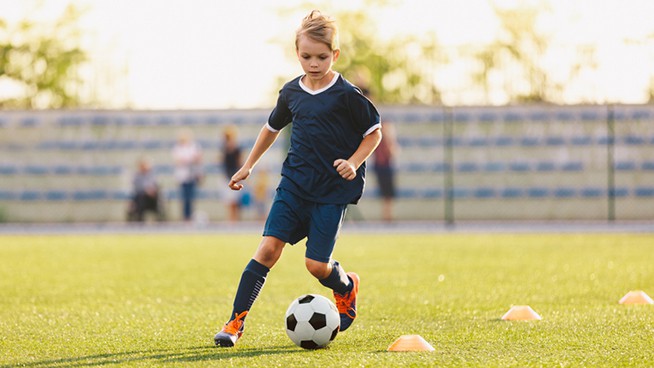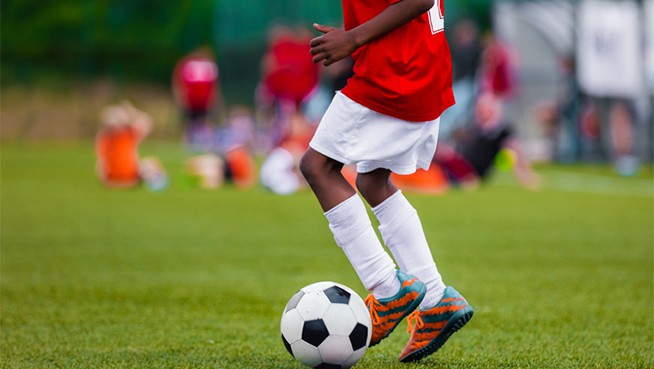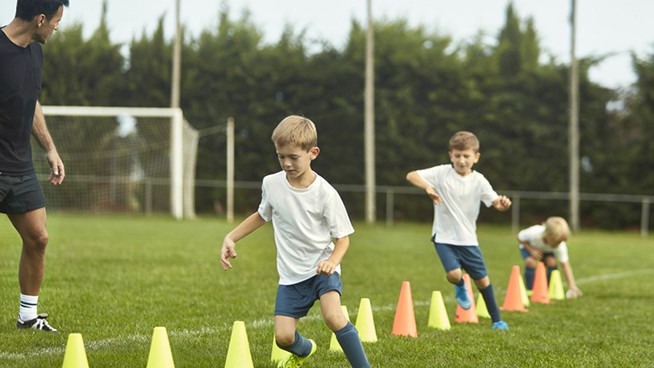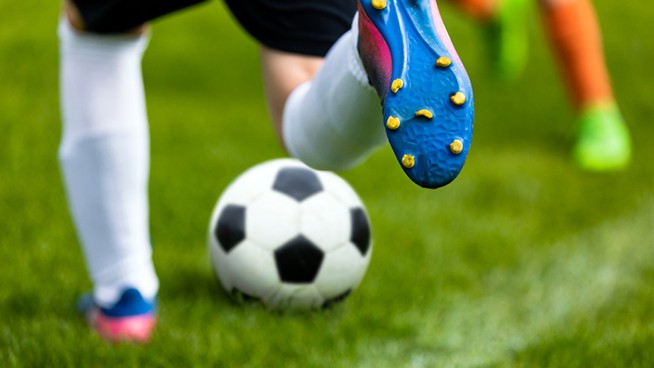New Study Reveals the Most Important Attribute for Soccer Success
A new study from the University of Queensland used analytic techniques to determine the impact a soccer player’s size, skill, speed, strength, endurance and balance had on their in-game performance.
The researchers, who utilized analytic techniques developed in evolutionary biology, looked to answer a rather simple question: “What drives variation in (soccer) performances among individuals?” Surprisingly, the answer had almost no correlation with maximum athletic ability.
The study consisted of taking players from the University of Queensland Football Club and measuring parameters of their morphology, maximum athletic performance, motor skill function and balance. The measures of morphology included upper and lower limb lengths, total height, total mass, torso-length, and maximum circumference of leg and arm muscles. The measures of maximum athletic ability included maximum speed over 1,500 meters, total Squat time, maximum jumping distance, 40-meter sprint speed and time through an agility circuit. The measures of motor skill function included maximum dribbling speed, average juggling ability, static-ball passing accuracy, volley-kick accuracy and heading accuracy. The measures of balance included having a player stand on a high-density foam platform with one foot and their eyes closed. Researchers recorded the average time it took each participant to lose their balance for three trials on both sides and then produced an average which equated to their “relative balance.”
Researchers then analyzed players’ performance in both one-on-one “soccer-tennis” games and 11-a-side competitive matches.
“We found that individuals with greater skill were more likely to perform well in soccer-tennis games and 11-a-side matches. Furthermore, skill was also the best predictor of an individual’s contribution to the success of a team, based on a social network analysis of ball movement,” the study’s authors write.
“Accurate passing and greater ball control are more important for success than high speed, strength and fitness,” lead author Professor Robbie Wilson told ScienceDaily.com. “It may be obvious to soccer fans and coaches that players like Lionel Messi and Neymar are the best due to their skill. However, 90 percent of research on soccer players is based on how to improve their speed, strength, and agility—not their skill.”
The study should better inform soccer-based training objectives and research moving forward. “There are kids with an incredible amount of skill who aren’t being selected for teams and training programs because they can’t run as fast at 9, 10,or 11 years old,” Wilson says. “These kids need to be given a chance and the science of skill is on their side.”
Photo Credit: SeventyFour/iStock
READ MORE:
RECOMMENDED FOR YOU
MOST POPULAR
New Study Reveals the Most Important Attribute for Soccer Success
A new study from the University of Queensland used analytic techniques to determine the impact a soccer player’s size, skill, speed, strength, endurance and balance had on their in-game performance.
The researchers, who utilized analytic techniques developed in evolutionary biology, looked to answer a rather simple question: “What drives variation in (soccer) performances among individuals?” Surprisingly, the answer had almost no correlation with maximum athletic ability.
The study consisted of taking players from the University of Queensland Football Club and measuring parameters of their morphology, maximum athletic performance, motor skill function and balance. The measures of morphology included upper and lower limb lengths, total height, total mass, torso-length, and maximum circumference of leg and arm muscles. The measures of maximum athletic ability included maximum speed over 1,500 meters, total Squat time, maximum jumping distance, 40-meter sprint speed and time through an agility circuit. The measures of motor skill function included maximum dribbling speed, average juggling ability, static-ball passing accuracy, volley-kick accuracy and heading accuracy. The measures of balance included having a player stand on a high-density foam platform with one foot and their eyes closed. Researchers recorded the average time it took each participant to lose their balance for three trials on both sides and then produced an average which equated to their “relative balance.”
Researchers then analyzed players’ performance in both one-on-one “soccer-tennis” games and 11-a-side competitive matches.
“We found that individuals with greater skill were more likely to perform well in soccer-tennis games and 11-a-side matches. Furthermore, skill was also the best predictor of an individual’s contribution to the success of a team, based on a social network analysis of ball movement,” the study’s authors write.
“Accurate passing and greater ball control are more important for success than high speed, strength and fitness,” lead author Professor Robbie Wilson told ScienceDaily.com. “It may be obvious to soccer fans and coaches that players like Lionel Messi and Neymar are the best due to their skill. However, 90 percent of research on soccer players is based on how to improve their speed, strength, and agility—not their skill.”
The study should better inform soccer-based training objectives and research moving forward. “There are kids with an incredible amount of skill who aren’t being selected for teams and training programs because they can’t run as fast at 9, 10,or 11 years old,” Wilson says. “These kids need to be given a chance and the science of skill is on their side.”
Photo Credit: SeventyFour/iStock
READ MORE:











